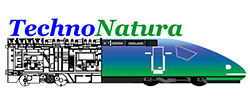To address these problem areas in future education, TechnoNatura took a holistic approach that integrates fun and Joyful learning in character development, mastering Industry 4.0 skills, environmental care, and STEAM education into the curriculum.
Madrasah TechnoNatura was founded as an alternative model of fun and joyful learning and meaningful STEAM project based learning experience for youth to embrace 21st century skills with addition and 1 c. so it become 4R ( Religius, Reading, Riting, and Rithmetic) as foundation skills and 5C ( Creative, Critical, Concordance work, Communicaton and collaboration) in mastering the disruptive technology that drive Industry 4.0
Madrasah TechnoNatura is an experimental school founded in 2004 under the auspices of the CREATE Foundation (Center for Research on Education, Art, Technology and Entrepreneurship). The presence of the Madrasah TechnoNatura is an expression for an appropriate form of education with its era. The existing conventional schools were considered not yet optimal in responding to the challenges of the 21st century, especially with such rapid technological developments i.e. information technology. Madrasah Technonatura is a type of Islamic educational institution that emphasizes the integration of technology with Islamic studies and environmental education. It is based on the concept of Technonatura, which combines technology (Techno) with nature (Natura) to promote sustainable development and environmental conservation.
The TechnoNatura, opened in Depok in 2004 began as home schooling but in 2012 the government of Indonesia under Ministry of Religious Affair granted Madrasah status, an Islamic school that committed to education, experimenting STEAM education, to achieve 21st centuries skills, promotes creativities, sustainability and shapes future innovator leaders. Understanding and Nurturing Industry 4.0, Forging a better human character for Indonesia 2045. It currently serves more than 350 students aged 6–18.
30 INNOVATIVE STRATEGIES TO MAKE STUDENTS HAPPY AT SCHOOL
In overcoming the challenges of fun and joyful learning, TechnoNatura has been experimenting and deploying with a number of innovation strategy of education. Nair's approach to education are centered on the concept of personalized learning, which is designed to cater to the unique needs, interests, and strengths of each student. TechnoNatura believes that personalized learning is the key to developing happy student and well-rounded individuals who are equipped with the skills and knowledge they need to succeed in the 21st-century world.
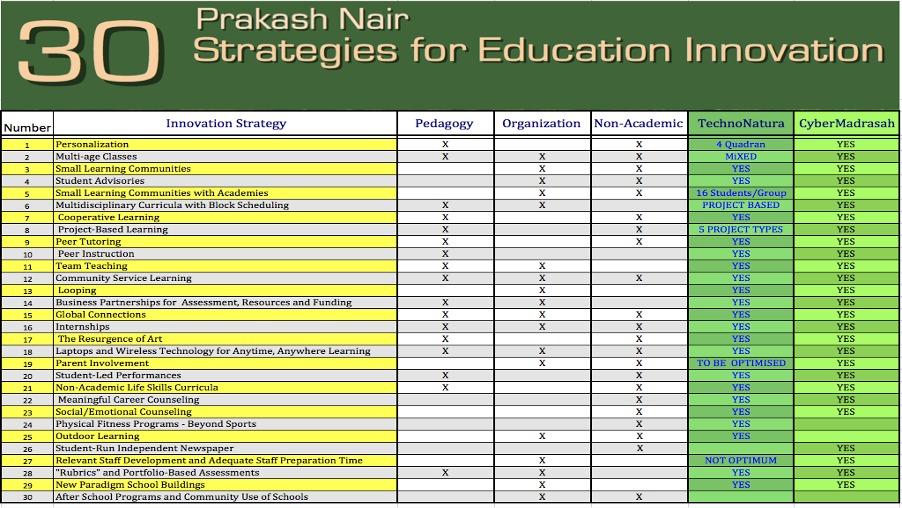
Here are some of the Nair's strategies that Technonatura has been experimenting on in its 30 innivation strategy approach to education:
- Student-centered learning: Technonatura 's approach to education is based on the belief that each student has unique learning needs and styles, and that learning should be tailored to meet those needs. Teachers work closely with students to develop personalised learning plans that take into account their interests, strengths, and learning goals
-
STEAM Education: STEAM education (science, technology, engineering, Art and mathematics) is an education trend that emphasises the importance of teaching these subjects in an integrated and interdisciplinary way. It seeks to prepare students for careers in these fields, which are projected to be in high demand in the coming years. It increased engagement, STEAM education uses hands-on, experiential learning to engage students and make learning more meaningful. It helps students see the relevance of what they are learning and fosters a love of learning.
-
Increased engagement: STEAM education uses hands-on, experiential learning to engage students and make learning more meaningful. When students are engaged in their learning, they are more likely to feel a sense of accomplishment and happiness.
-
Sense of purpose: STEAM education helps students see the relevance of what they are learning and how it can be applied to real-world problems. This can give students a sense of purpose and motivation.
-
Opportunities for creativity: STEAM education encourages students to think outside the box and come up with innovative solutions to real-world problems. This can give students a sense of ownership over their learning and a feeling of creative fulfillment.
-
Collaboration and social connections: STEAM education often involves working in teams to solve problems and complete projects. This promotes collaboration and communication skills, which can lead to positive social connections and a sense of community.
-
Positive impact: STEAM education can give students the opportunity to make a positive impact on the world. When students feel like they are making a difference, they are more likely to feel a sense of fulfillment and happiness.
3. Project-based learning: Technonatura 's emphasizes project-based learning, which involves students working on real-world projects that are designed to build critical thinking, problem-solving, and collaboration skills. Students are encouraged to work in groups and to take ownership of their learning, with teachers acting as facilitators and mentors. This learning approaches offer a diverse menu from direct instruction to playful learning so that students are able to develop a wide range of skills and competencies from mastering academic subjects to learning creatively and collaboratively solve problems to learning how to apply knowledge to real world situation
Project Based Learning is designed to be relevant to students' lives and experiences. When students see the relevance of what they are learning, they are more likely to be motivated and happy.Through project-based thematic-integrative learning, students have 5 thematic-integrative types, namely:
- Science project, a project that invites students to research the surrounding natural phenomena
- Engineering project, a project that invites students to design and build an object / technology product mostly Robot and IoT.
- Project Art design, a project that invites students to release artistic creativity.
- Social Project, a project that invites students to observe the socio-cultural symptoms happening around them and is active to prepare students entering in the existing social environment.
- Entrepreneurship Project, a project that invites students to design an entrepreneurship with an emphasis on the development of compromise between Products, Price, Promotion and Place
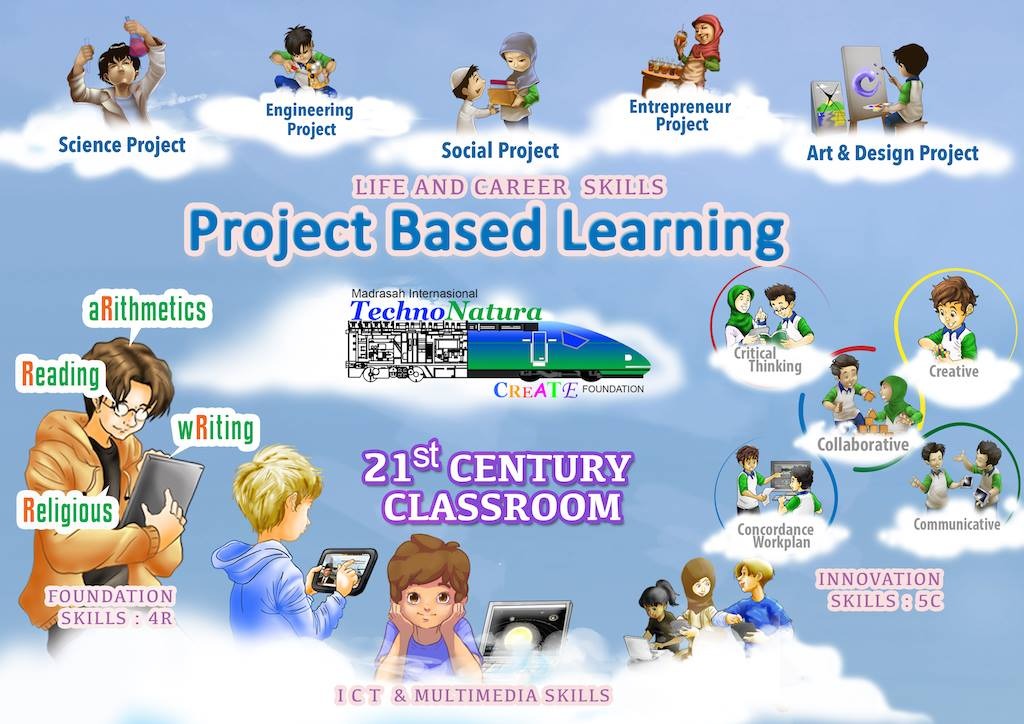
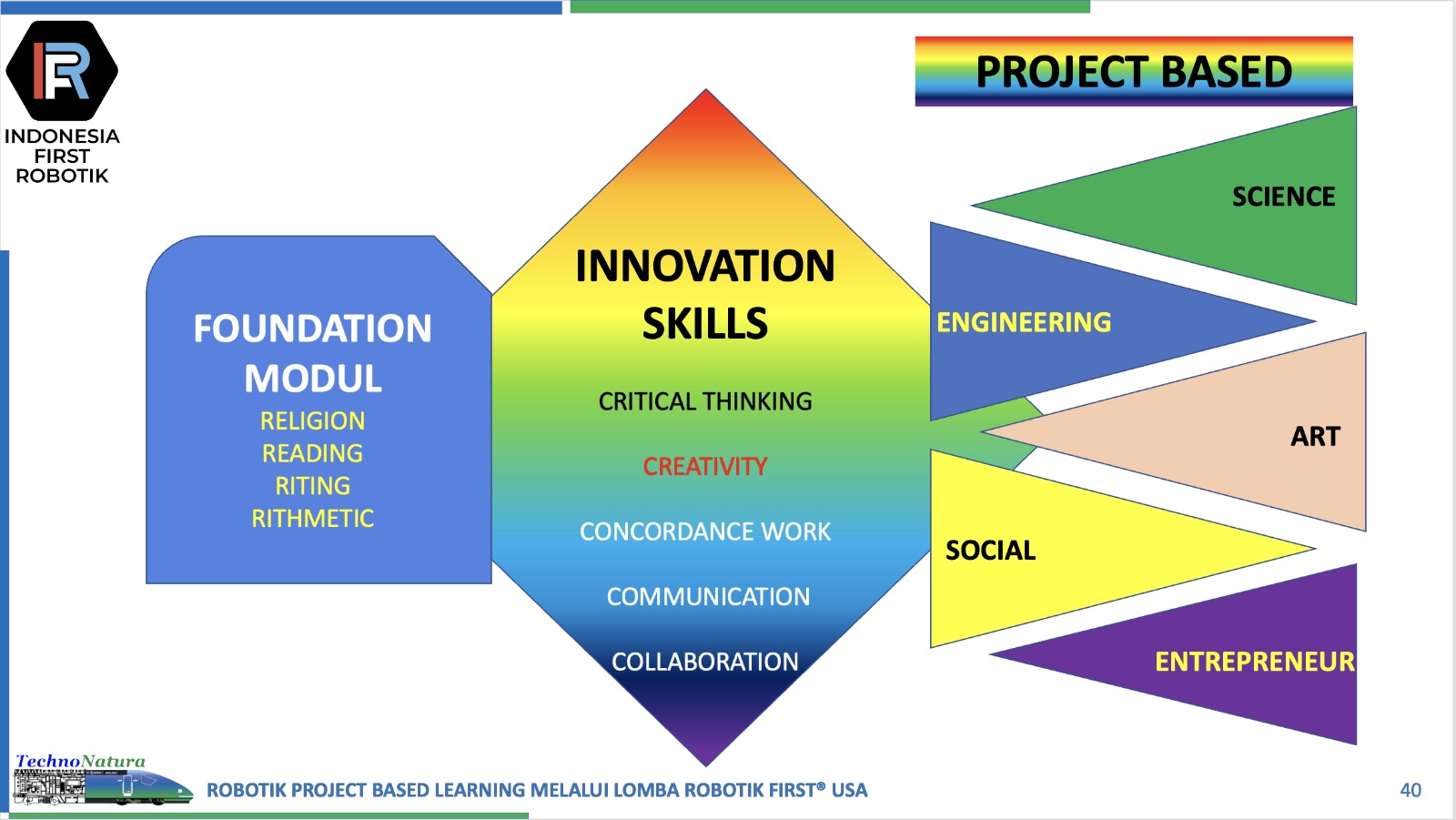
Project based learning allow students to pursue the learning as suit their interest and talent and it offer a diverse menu from direct instruction to playful learning so that students are able to develop a wide range of skills and competencies from mastering academic subjects to learning creatively and collaboratively solve problems to learning how to apply knowledge to real world situation
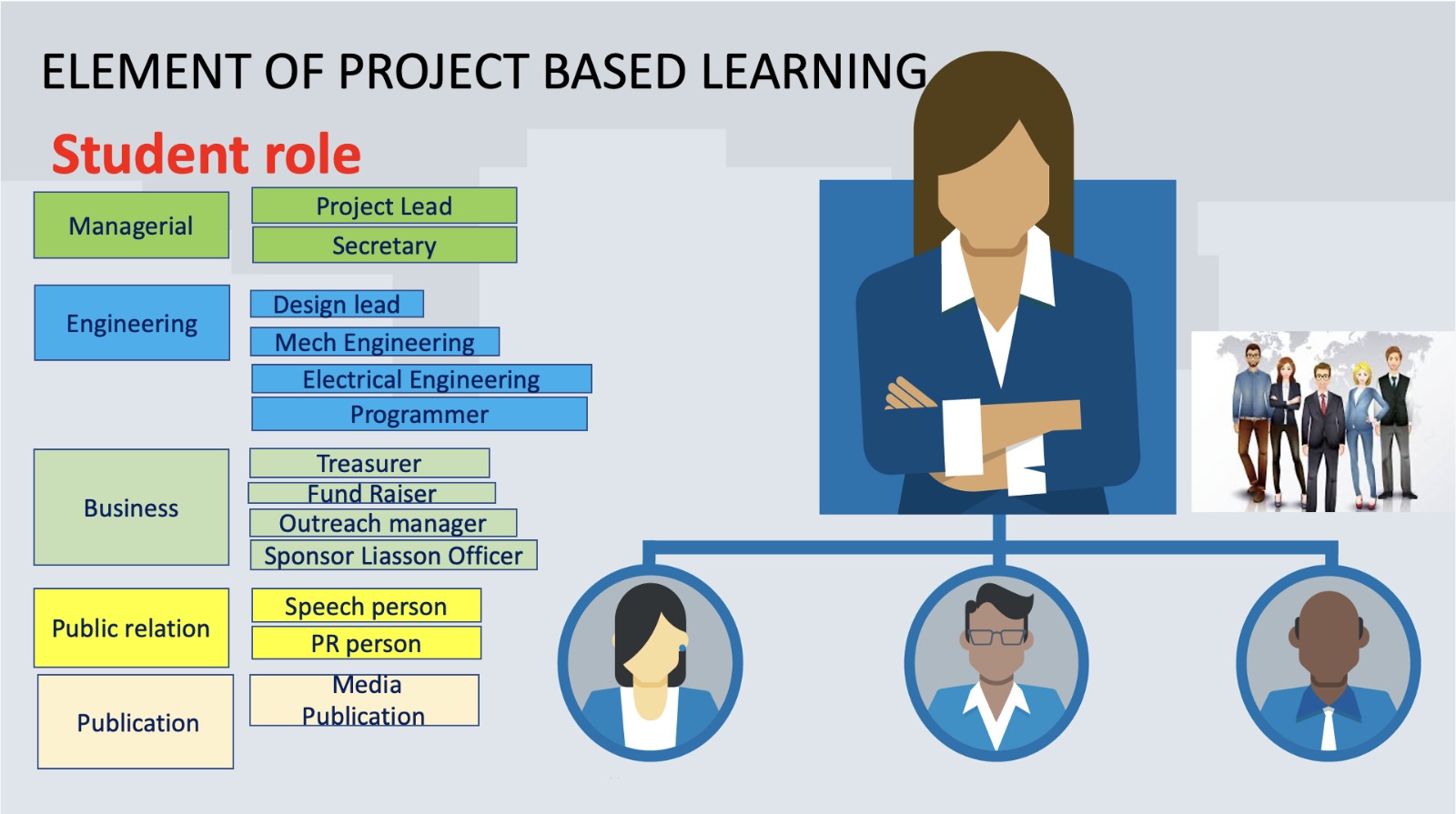
4. Technology integration
Technonatura 's makes extensive use of technology to support personalised learning and project-based learning. Students have access to a wide range of IR 4,o tool, digital tools and resources, including online learning platforms, virtual reality simulations, AI, IOT and robotics kits, which they can use to explore and create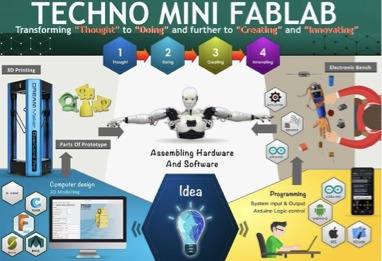
-
-
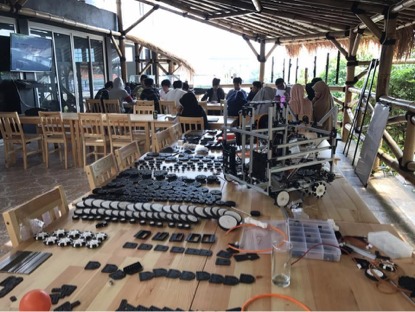
Robotic parts and equipment for Secondary School
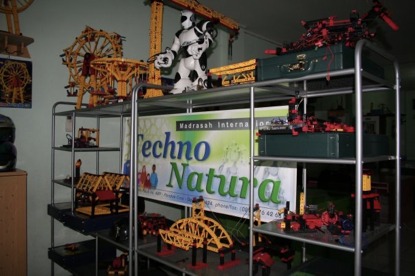
-
-
5. Competency-based assessment:
Technonatura 's approach to assessment is based on the idea of competency-based learning, which focuses on students' mastery of specific skills and knowledge rather than on their performance on standardised tests. Teachers use a range of assessment methods, including self-assessment, peer assessment, and project-based assessment, to evaluate students' progress.
it is highly possible that competency-based assessment would have a positive impact on student happiness. By focusing on the development of competencies, rather than simply grades or test scores, students may feel more motivated and engaged in their learning. Additionally, receiving specific feedback on their progress can help students feel more confident and competent, which can contribute to their overall happiness and well-being.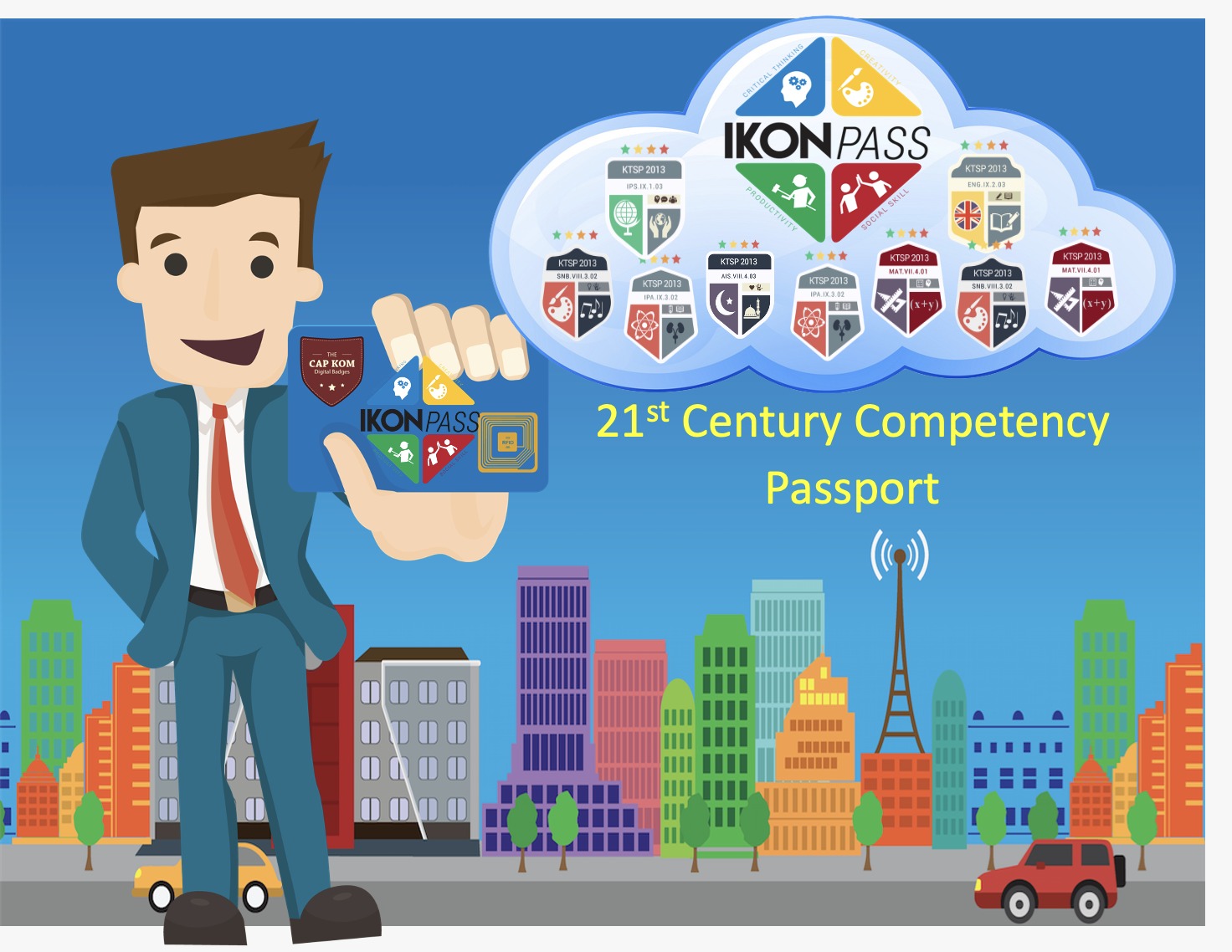
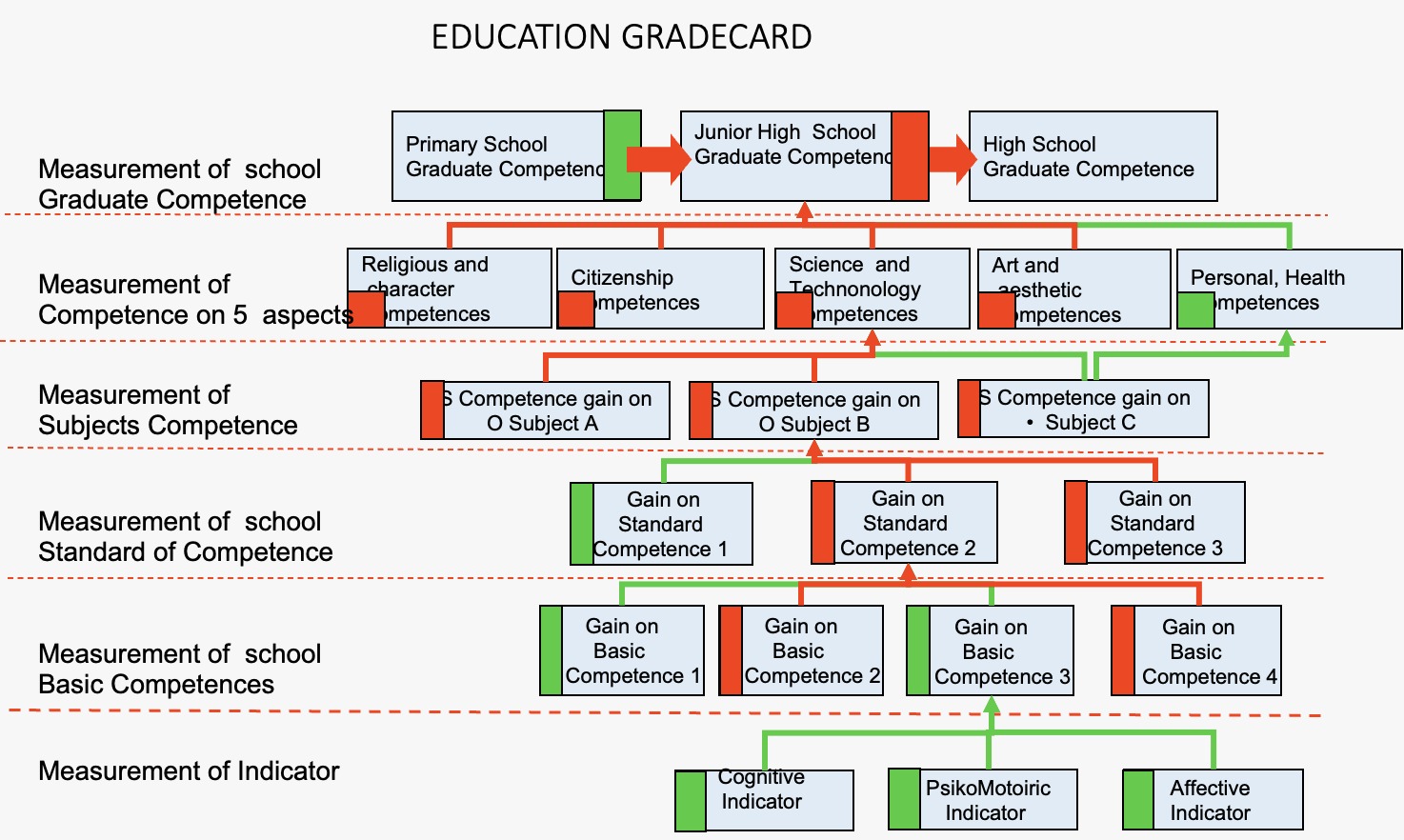
Overall, Technonatura 's strategies in their approach to education emphasise personalised learning, project-based learning, technology integration, and competency-based assessment, all of which are designed to make students happy at school in fostering creativity, critical thinking, and lifelong learning skills in students.
- Log in to post comments
